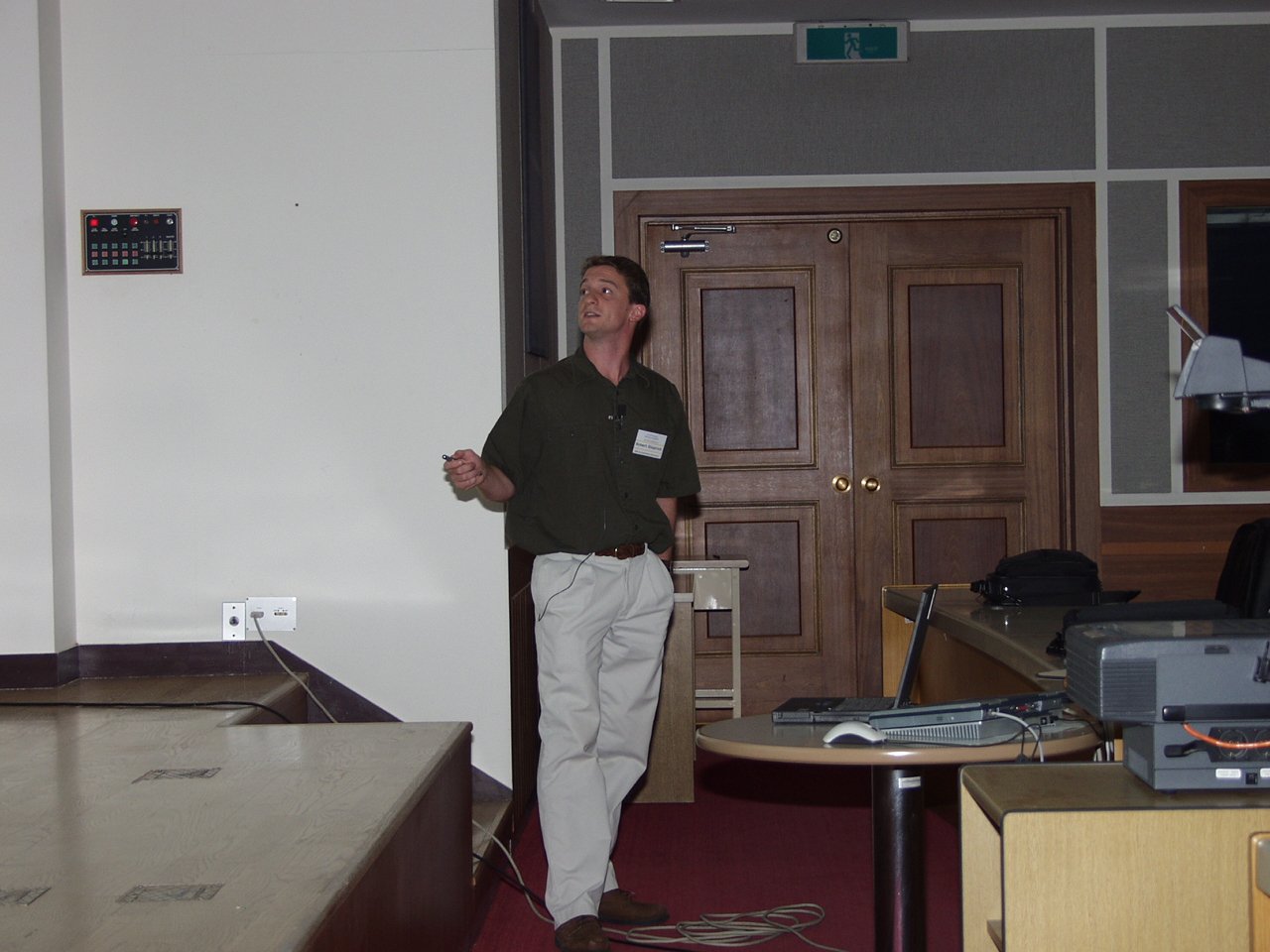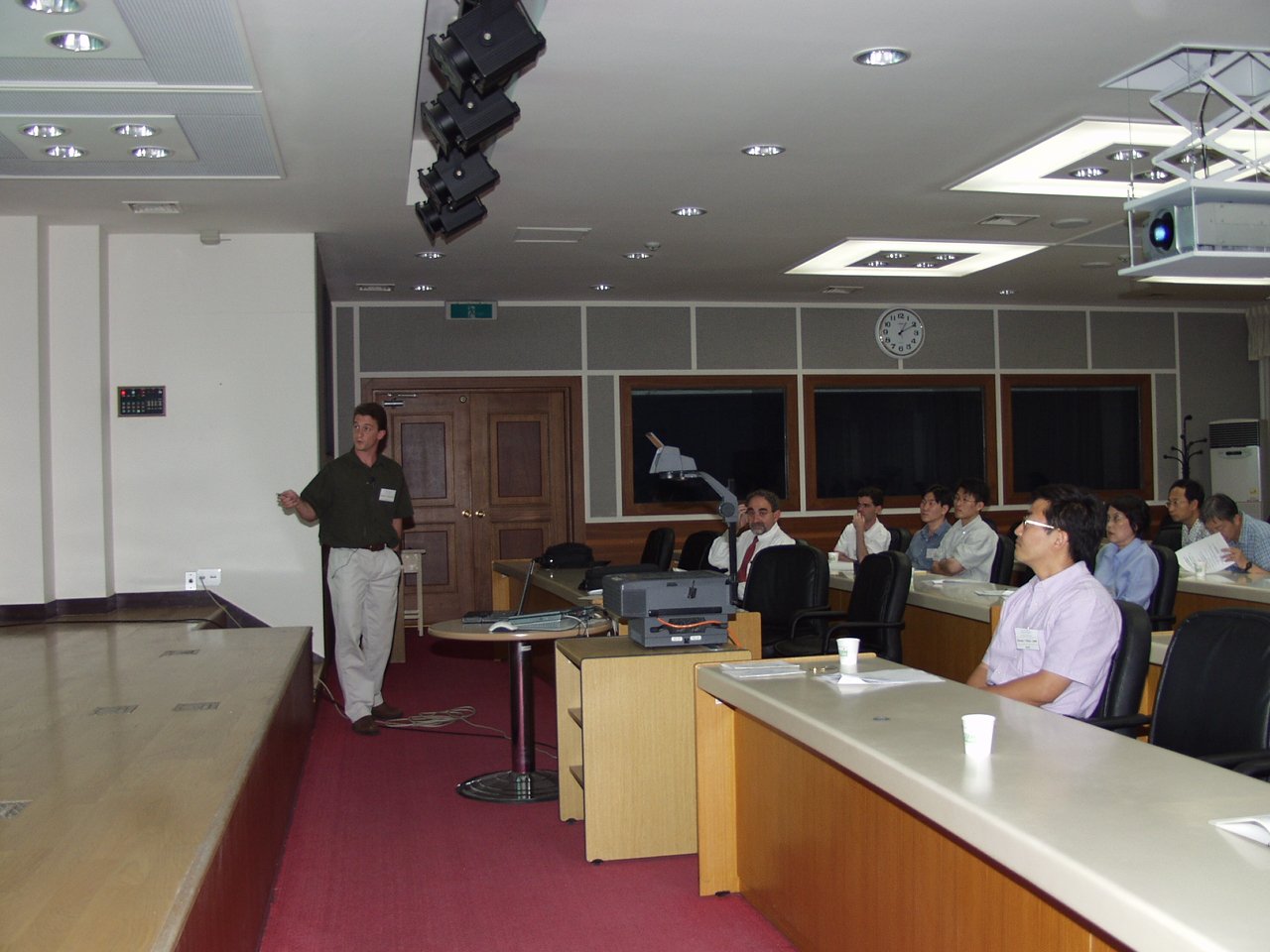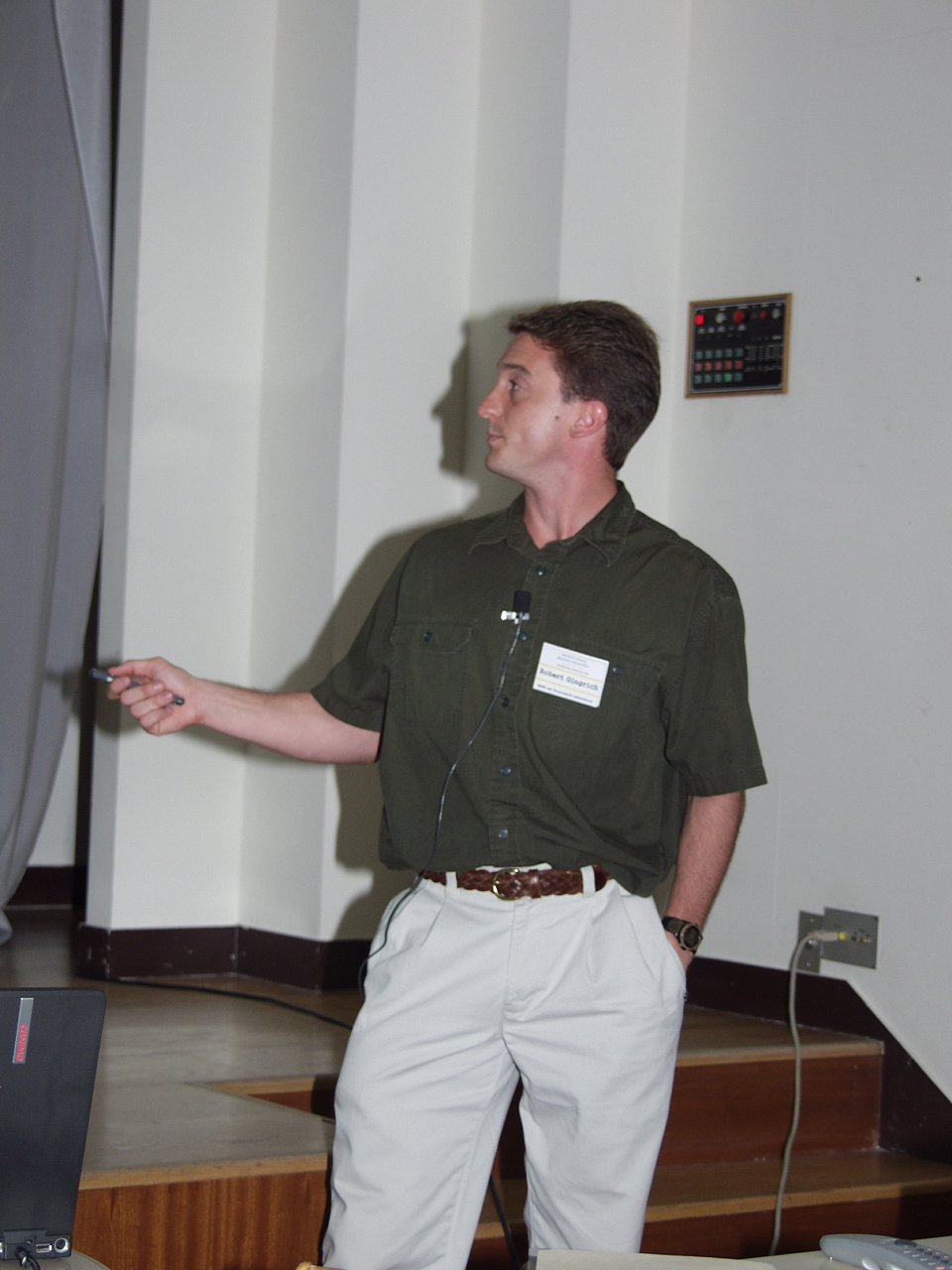

Robert Gingrich (JPL, USA)
Presentations: Click_Here_1, Click_Here_2



http://cs.jpl.nasa.gov/qct/qct/bio/rmg.html
http://cs.jpl.nasa.gov/qct/qat.html
Bob Gingrich received a BA in Mathematics (high honors) and a BS in Physics (highest honors) from the University of California at Santa Cruz in 1996. He then went on to the California Institute of Technology where he received an MS in Physics in 1998 and a PhD in Physics with a minor in Computer Science in 2001. His research advisor was John Preskill and his research area was Quantum information theory. Primary research areas have been Grover's algorithm, criteria for separability, multipartite entanglement, generalized Schmidt decompositions and clock synchronization. See the group's publication list for a list of publications.References: quant-ph/9710001
Quantum conditional operator and a criterion for separability
quant-ph/9904049
Generalized Quantum Search with Parallelism
quant-ph/0106042
Properties of Entanglement Monotones for Three-Qubit Pure States
1. Linear Optics and Projective Measurements
Reference:
quant-ph/0109080,
quant-ph/0203134,
quant-ph/0202133
What are the uses for the photon number path entangled NOON state |N,0> +|0,N>? Applications of these states to gyroscopes, lithography, atomic clocks and phase measurements in general will be explored. Also, I will show the mathematical equivalence of these different measurements. Can one efficiently create NOON states with existing technologies? Schemes to create NOON states using only linear optics and projective measurements will be presented. Lastly, I will show a method of using linear optics and projective measurements to make quantum repeaters to transmit quantum information over long distances.
2. Relativistic Effects on Entanglement
References: quant-ph/0205179,
quant-ph/0010098,
quant-ph/0010097
The spin of an electron, or any spin 1/2 particle, is often used as the physical realization of a qubit. But spin is treated differently in relativistic Quantum Mechanics than in non-relativistic QM. How does this difference change the idea of entanglement betweens spins? Is the entanglement invariant under Lorentz Transformations? These questions will be answered in this talk.